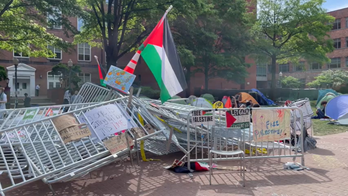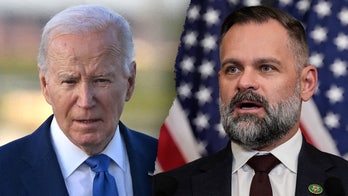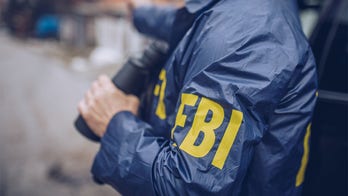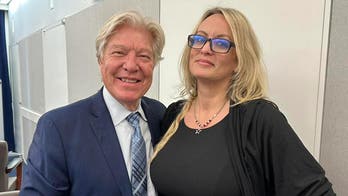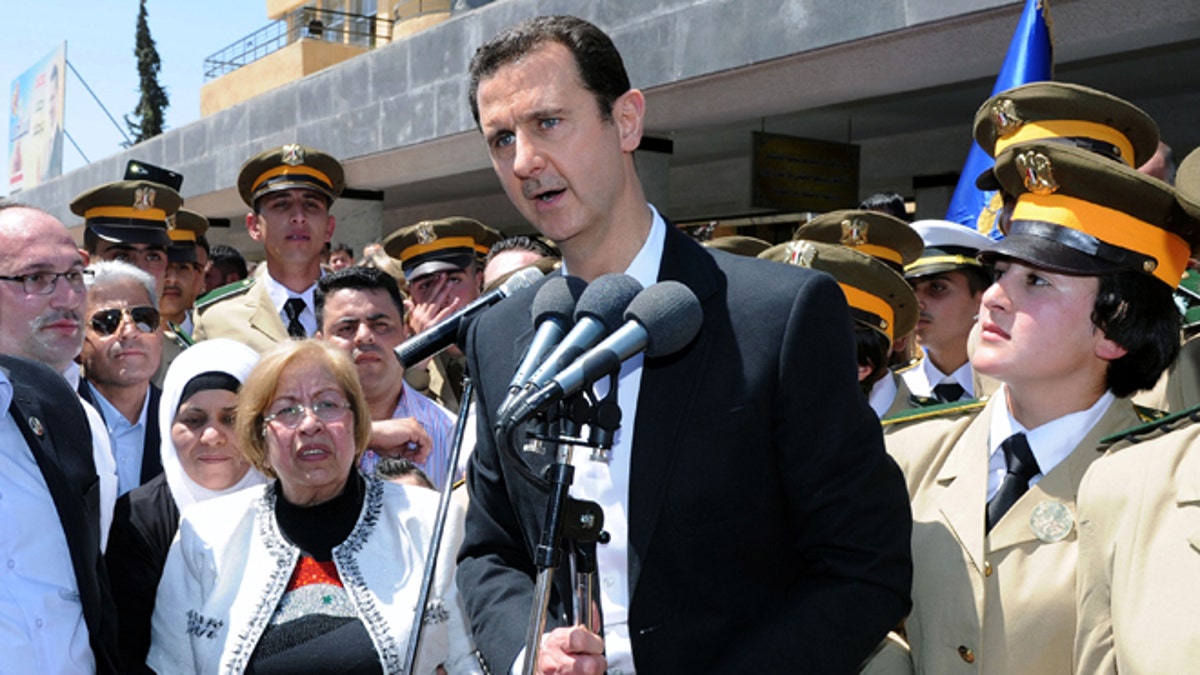
May 6, 2015: In this photo released by the Syrian official news agency SANA, Syrian President Bashar Assad speaks during a public appearance at a school in Damascus, Syria. (AP)
In September 2013, as the U.S. and Russia were forging a diplomatic deal aimed at ridding the Assad regime of chemical weapons -- and averting a U.S. military strike -- President Obama vowed to keep a close eye on Damascus.
"The international community expects the Assad regime to live up to its public commitments," he said at the time, threatening "consequences" if Assad balked and saying "the United States remains prepared to act" if diplomacy failed.
Nearly two years later, the Assad regime is facing new chemical weapons allegations. But the Obama administration no longer appears to be drawing "red lines." Rather, the U.S. is urging the United Nations to investigate, and suggesting Russia might be able to help pressure Bashar Assad to stop if the allegations are confirmed.
"It won't be enough," warned Andrew Tabler, a senior fellow at The Washington Institute.
Tabler and others are voicing concern that Assad's alleged actions are increasingly posing a "reputational problem" for the U.S., while potentially fueling the already-devastating fighting in Syria. And they're looking for a tougher tone from the U.S. and others.
"I think everybody ... maybe even including the president, thought the chemical weapons file was closed -- and it's not," Tabler said.
Human Rights Watch recently urged the U.N. Security Council and all countries party to the Chemical Weapons Convention "to respond strongly" to the evidence, saying it appears the Syrian government has again violated the ban against "chemical warfare."
Reports have surfaced for months that chlorine gas is being used as a weapon in Syria, killing and injuring civilians, though Assad denies responsibility.
While chlorine itself is not internationally banned (as it has commercial purposes) and chlorine was not among the agents the Assad regime was required to relinquish under the 2013 deal, it is prohibited from being used as a weapon.
Further, new questions are being raised about the presence of agents that are banned. Diplomats said last week that chemical weapons experts found traces of deadly nerve agents used to make chemical weapons at a site in Syria where the agents were not supposed to be.
The discovery of traces of sarin and VX renewed fears that Syria did not disclose all aspects of its chemical weapons program when it joined the Chemical Weapons Convention in 2013 and agreed to destroy its chemical arsenal. That decision averted a U.S. military strike in response to an alleged chemical weapons attack that killed hundreds near Damascus on Aug. 21, 2013.
Under that 2013 deal, inspectors say the bulk of Assad's stockpile has been destroyed.
But the latest developments have spurred calls for the international community to investigate the allegations and crack down on the Assad regime if it's confirmed they are flouting international agreements.
For now, the Obama administration is urging the creation of a U.N.-appointed team to investigate and attribute blame for the chlorine attacks.
Yet it's unclear what consequences the Assad regime might face if found responsible.
The White House has suggested it might turn to Russia to stop Assad from using chemical agents as weapons if needed.
"If we have the kinds of confirmation that we need, we will, once again, work with the international community and the organization charged with monitoring compliance by the Syrian government, and we will reach out to patrons of Assad like Russia to put a stop to it," Obama said last week when asked about the chlorine gas claims.
Tabler said the Russians indeed are "losing face" over the 2013 agreement. But he questioned whether they would have enough leverage over Syria this time around to get the regime to stop.
He nevertheless urged the Obama administration to work with the Russians on this -- while also preparing "contingency plans" in case the Assad regime won't cooperate.
"[Obama] should always keep the military option on the table," he said.
Obama did not go quite that far in his remarks last week.
White House spokesman Eric Schultz also was asked Friday about the reports that traces of sarin and VX were found. Schultz said "there's no doubt that more work needs to be done in a number of these areas to ensure that the Assad regime fully meets its obligations." He, too, stressed that the U.N. Security Council has a role to play in assigning blame for recent attacks.
"There is urgency," he said. "... Once there's a conclusion drawn, then we are going to work with our international partners, just as we did a few years ago, to make sure this doesn't happen again."
A State Department official told FoxNews.com earlier this month they are "actively engaged" with U.N. colleagues on the issue. "We continue to look very closely into this matter and are considering next steps," the official said.
With traces of VX and sarin showing up, Latvia's representative to the OPCW, Maris Klisans, speaking on behalf of the European Union, said in a speech last week that serious questions remain over the accuracy of Syria's declaration, which was supposed to list all its chemical weapons and production and storage facilities.
"The list of discrepancies remains long," Klisans said. "These are not trivial bookkeeping issues."
The National Coalition of Syrian Revolution and Opposition Forces also wrote earlier this month to the U.N. Security Council citing reports of chlorine gas attacks in the Idlib and Hama areas and urged the creation of a no-fly zone to protect the Syrian people.
The letter said: "In each instance, barrel bombs loaded with poisonous chemical substances were deployed from Syrian regime helicopters."
Still, the allegations do not appear to be eliciting a vocal clamoring for action from Capitol Hill, where lawmakers appear focused more on gains being made by Islamic State fighters in Iraq and Syria than the Assad regime's wartime actions.
A House Armed Services Committee aide said the panel is following the issue "with great concern" and will likely discuss it more during an upcoming intelligence briefing with the administration.
Republicans also point to the allegations in asserting the world has only become more dangerous under the Obama administration.
"This is an administration that said they needed to restart the relationship with Russia. That didn't turn out well. That we had broken the back of Al Qaeda, that ISIS was a JV team. None of that has become true and he also said he stopped Assad from having chemical weapons and now we are finding out that Assad still has them," House Majority Leader Kevin McCarthy, R-Calif., told Fox News' "On the Record with Greta Van Susteren" last week.
FoxNews.com's Judson Berger and The Associated Press contributed to this report.

